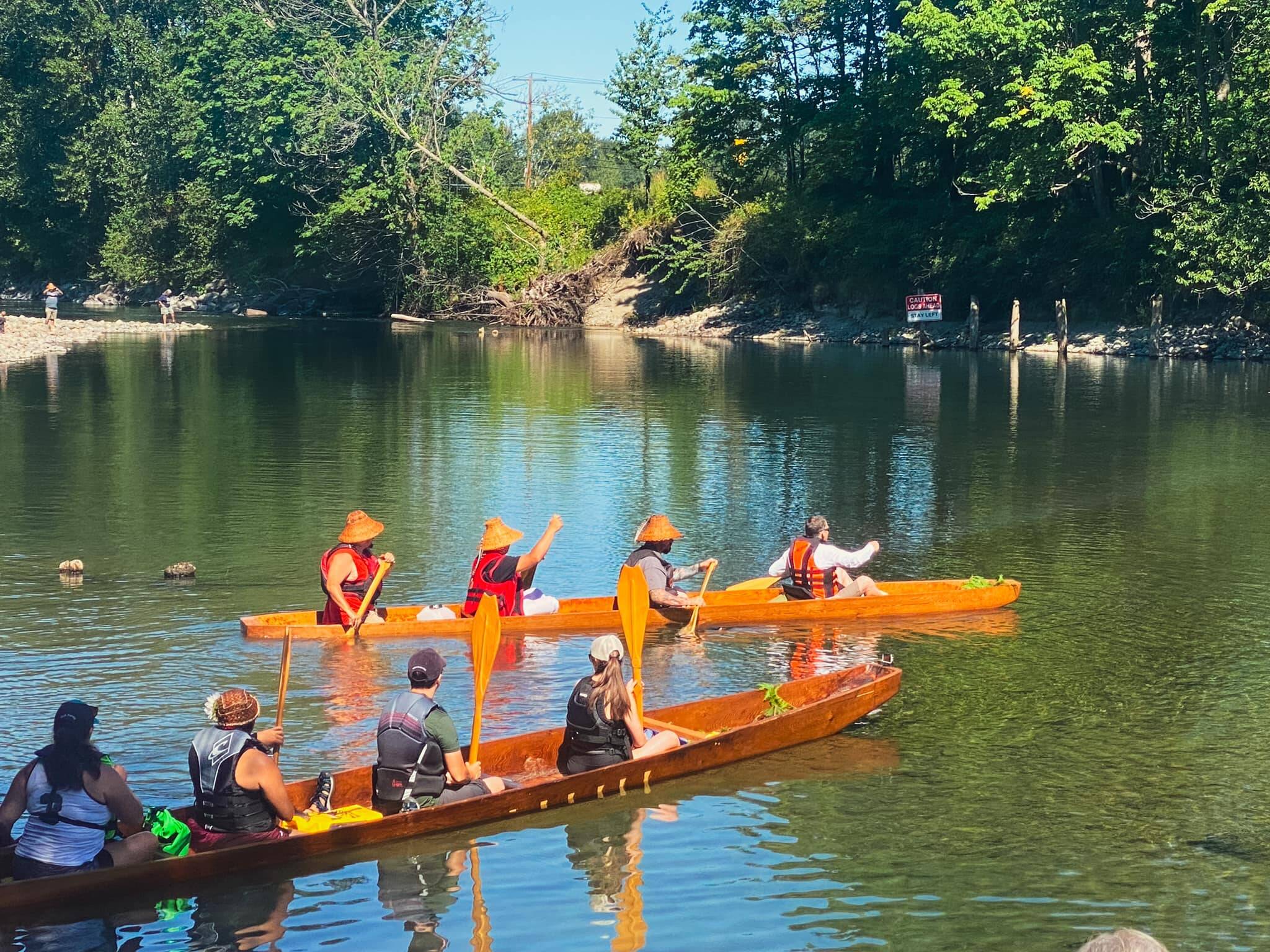For the first time since the COVID-19 Pandemic, Snoqualmie Tribal members are embarking on canoe journey. Over a week-long span, they’ll travel by canoe from the base of Snoqualmie Falls all the way to Alki Beach.
Founded in 1989 by Emmett Oliver of the Quinault Nation, canoe journey is thought to be one of the largest annual gatherings of indigenous people in the Pacific Northwest. Each year, hundreds of canoes paddle from their home waters to a rotating host nation.
For Snoqualmies, the 2023 journey, “The Paddle to Muckleshoot” began on July 22 at the Fall City boat launch. Using three cedar canoes, they will travel up the Snoqualmie River – making stops in Carnation, Duvall, Snohomish and Tulalip.
Once in Puget Sound, they’ll switch to a 36-foot-long ocean canoe and land on Alki Beach in West Seattle July 30. The trip will conclude with a six-day celebration on the Muckleshoot Tribe’s reservation, an event known as final protocol, where an estimated 8,000 to 10,000 people are expected to attend.
Snoqualmie Tribal Chairman Robert de los Angeles says canoe journey is a spiritual event. Tribal members get to feel a connection to their ancestors, who have traveled by canoe since time immemorial.
“It’s something that’s been passed down from generation to generation,” de los Angeles said of canoe travel. “It’s part of our heritage and culture. It’s important to practice today and preserve for our future members.”
This year’s journey in particular, the first since 2019, has taken on a greater significance following the death of many tribal elders during the COVID-19 pandemic.
“This past year we lost a lot of people in our canoe family,” said Snoqualmie Skipper Wayne Graika, who has been navigating the waters on canoe journey since 2002.
Preparation for the event is a year-round effort, he said. Canoe practice begins with a “waking” ceremony in early April, followed by bi-weekly practices on Lake Sammamish. Other preparations include gift-making for the host tribe, as well as culture classes to teach songs and dances that will be used on the journey.
It can be hectic, but “once the canoes hit the water it all falls into place,” Graika said.
People go on canoe journeys for different reasons, said Suzanne Sailto, a Snoqualmie Tribal Councilmember. For her, the trip has been about healing. Sailto credits past journey’s as a catalyst for her now 14 years of sobriety as well as grieving the death of her two children.
“When you’re out on these waterways, you’re out there praying and singing,” she said. “It’s very healing.”
The trip is notable for connecting indigenous tribes from all across the region. Melynda Digre, another councilmember, says the event is bigger than any one tribe. It’s a time for all indigenous people to celebrate the preservation of their culture after centuries of injustice. Every tribe has experienced colonization, trauma, and erasure, Digre said, noting her grandma was physically abused in a residential school for speaking her native language.
“They were trying to abolish indigenous culture,” she said. “We survived that and this is one of the ways we can celebrate
Part of the journey is also about teaching younger members the Tribe’s culture, including songs, dances, art, and Lushootseed, Snoqualmie’s native tongue. Digre, a new mom, said she is excited to share those stories and experiences with her infant son and members of her “canoe family.” This year’s journey will be about honoring those who died during the pandemic and preserving their stories, she said.
“I think about those who passed knowledge on to me and some of them aren’t here anymore. But they live on in those stories and that’s my responsibility to pass on to others,” she said. “It’s hard sometimes, but we do it because they did it for us.”


